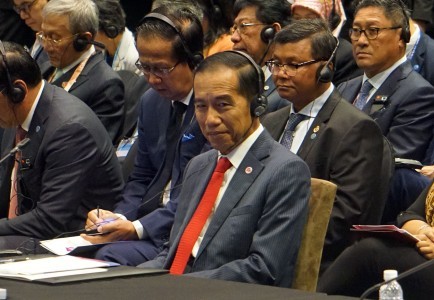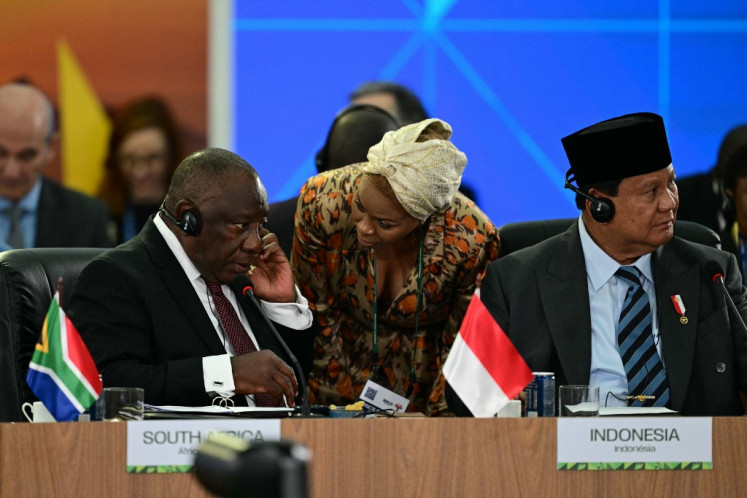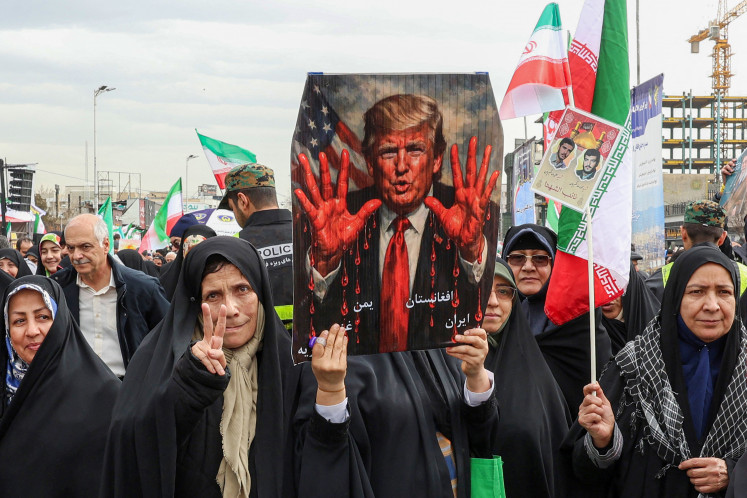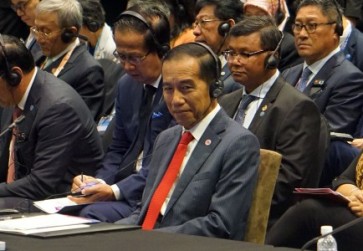Popular Reads
Top Results
Can't find what you're looking for?
View all search resultsPopular Reads
Top Results
Can't find what you're looking for?
View all search resultsIn Indo-Pacific, Jokowi needs to be more assertive
If Indonesia wishes to make any meaningful strides in advancing its “Indo-Pacific Cooperation” concept, President Joko “Jokowi” Widodo will have to focus on engaging ASEAN leaders instead of focusing more on domestic policy. #opinion
Change text size
Gift Premium Articles
to Anyone
I
f Indonesia wishes to make any meaningful strides in advancing its “Indo-Pacific Cooperation” concept, President Joko “Jokowi” Widodo will have to focus on engaging ASEAN leaders instead of focusing more on domestic policy.
Drawing from a The Jakarta Post interview with the President (June 13), Jokowi has a preference for domestic over international affairs. The overarching theme of his first term was infrastructural development and bureaucratic reform, encapsulated nicely in his slogan “work, work, work”. Jokowi has shown to have dedicated himself to this mission with mixed yet laudable results. His decision to allocate more funds to development has allowed significant progress in many critical infrastructure projects, such as the Jakarta MRT, toll roads across the archipelago and electrification.
Now that Jokowi no longer has to worry about reelection, he should devote more effort and attention to foreign policy. In his first term, Jokowi made waves by pledging to make Indonesia a “global maritime fulcrum” (GMF), a hub connecting two strategic oceans. This was welcomed as a breath of fresh air by foreign policy observers; I once described it as a more extroverted foreign policy (The Diplomat, Dec. 17, 2016).
The GMF concept, however, has remained underdeveloped. For the most part, the Indonesian Ocean Policy, an authoritative document describing Indonesia’s maritime priorities, focuses less on enhancing Indonesia’s maritime profile. Many pillars are, instead, dedicated to boosting domestic maritime indicators, such as domestic connectivity and the economy.
Granted, without domestic capacity, there is little hope for a state to play a larger international role. However, reluctance to develop the GMF’s foreign linkages only serves to undermine its perceived extroverted tendencies.
Further development of the GMF has become imperative considering the shifting geopolitical context. Since 2007, the term “Indo-Pacific” has gained traction. The geopolitical construct, used to refer to the maritime and littoral areas of the Indian and West Pacific oceans, has since been embraced by both great and middle powers alike.
India, Japan, Australia and the United States — all of which constitute members of the Quadrilateral Security Dialogue — have proposed their respective Indo-Pacific visions, which basically share a similar “free and open” Indo-Pacific vision or strategy. The US perhaps holds the most assertive stance: forecasting “geopolitical competition between free and repressive visions of world order” in the Indo-Pacific.


















